Energy
Why we should be skeptical of the hydrogen economy
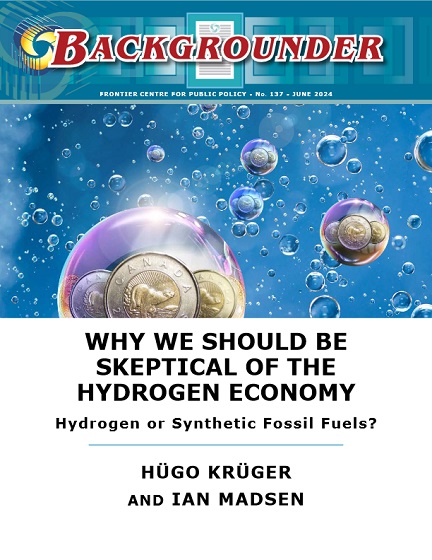
From the Frontier Centre for Public Policy
By Hügo Krüger and Ian Madsen
Hydrogen has a low energy density by volume, compared to well-established and practical fuels such as gasoline, diesel, and natural gas. It also has a low ignition point and is three times as explosive as natural gas, which could be either positive or negative.
At first glance, using highly variable, intermittent, inexpensive renewable energy to produce hydrogen for energy supply stabilization seems logical. However, renewable energy is not always readily available. The concept of hydrogen as a ‘buffer,’ akin to a battery, to ensure consistent renewable power is more complex than it appears.
Upon further examination, the idea is impractical and expensive for several reasons. Among them, hydrogen has a low energy density by volume, compared to well-established and practical fuels such as gasoline, diesel, and natural gas. It also has a low ignition point and is three times as explosive as natural gas, which could be either positive or negative, depending on its use.
Contrary to claims, renewable energy is neither inexpensive nor environmentally benign. Storing hydrogen in a natural gaseous state requires massive, costly storage vessels. Electrolyzing is expensive and will likely remain that way. Similarly, the cost of producing hydrogen is higher than that of deriving it from natural gas, which produces carbon dioxide, which is unwanted. There are some other techniques, such as pressure, heat, and radiolysis from radiation emitted from nuclear reactors, that are feasible, perhaps in combination. Small ‘micro nuclear reactors’ may drive down these costs. Atomic reactors are already used in U.S. Navy aircraft carriers to produce aviation and diesel synthetic fuel.
There are also a series of impractical issues. Existing pipeline infrastructure cannot transport pure hydrogen due to hydrogen embrittlement, and hydrogen cannot easily be used as a transportation fuel. A new Teflon-coated pipeline and distribution system parallel to the existing natural gas network would have to be built, costing hundreds of billions of dollars in North America alone.
While the idea of synthetic fuels using hydrogen may seem more feasible, it would likely be limited to a ‘niche role,’ potentially in natural gas-deficient nations. However, this would still necessitate significant investment. Ultimately, diverting funds to this ‘hydrogen economy’ could be a misallocation of capital from other, potentially more viable, areas.
Download the full report in PDF format here. (16 pages)
Hügo Krüger is a YouTube podcaster, writer, and civil nuclear engineer who has worked on a variety of energy related infrastructure projects ranging from Nuclear Power, LNG and Renewable Technologies. He holds a Master’s in Nuclear Civil Engineering from École Spéciale des Travaux Publics, du bâtiment et de l’industrie, Paris and a bachelor’s from the University of Pretoria.
Ian Madsen, BA (Economics, University of Alberta), MBA (Finance, University of Toronto), holds the Chartered Financial Analyst designation. He was an investment portfolio manager; owned his own investment counselling firm; published an investment newsletter; founded the professional society now known as CFA Saskatchewan in 1986; and was a director of an investment research operation in India. Since 2016, he has been the Senior Policy Analyst at the Frontier Centre for Public Policy, performing valuation analyses on federal and provincial Crown corporations in Canada, and also written numerous policy analyses. He lives in Surrey, British Columbia with his family.
Crime
Mexican Cartels smuggling crude oil in Texas, Southwest border
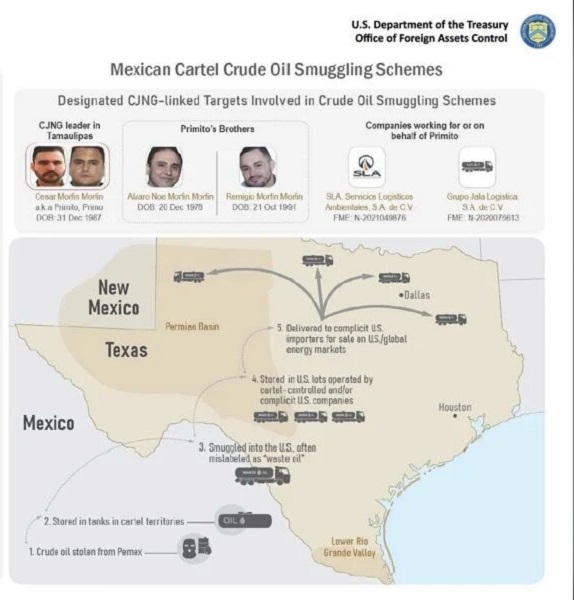
From The Center Square
By
The U.S. Treasury Department is cracking down on Mexican cartel crude oil smuggling in Texas and along the southwest border.
The department’s Office of Foreign Assets Control on Thursday (OFAC) sanctioned multiple Mexican nationals and Mexico-based entities involved in a drug trafficking and fuel theft network connected to the Mexican cartel, Cartel Jalisco Nueva Generacion (CJNG).
In February, the Trump administration designated CJNG and other Mexican cartels and transnational criminal organizations as Foreign Terrorist Organizations (FTOs) and Specially Designated Global Terrorist (SDGT).
Crude oil smuggling, “huachicol,” is interconnected with “a slew of criminal activities, including fentanyl trafficking,” and a range of violent crimes. It’s considered “the most significant non-drug revenue source for Mexican cartels and other illicit actors,” OFAC said. The thieves, “huachicoleros,” use a variety of means to steal fuel and crude oil from Mexico’s state-owned energy company, Petróleos Mexicanos (Pemex), including bribing and threatening Pemex employees, illegally drilling taps into pipelines, stealing from refineries and hijacking tanker trucks.
Their operations are facilitating “rampant violence and corruption across Mexico, and undercutting legitimate oil and natural gas companies in the United States,” OFAC states.
Stolen fuel is sold on the black market in Mexico and Central America through unregulated roadside fuel stops and cartel-controlled gas stations.
It’s also smuggled into the U.S. by brokers who label it as “waste oil” or hazardous material to evade detection. Stolen crude oil is then sold and shipped to oil and natural gas companies and refineries in Texas and nationwide, as well as to Japan, India, Africa and other countries, investigators found. It’s sold at a significant discount and the illicit proceeds are sent back to the FTOs and SDGTs.
According to law enforcement estimates, the U.S.-based importers earn roughly $5 million for each oil tanker shipment of crude oil to foreign jurisdictions, with multiple tankers leaving Texas ports every month. Most purchasing the shipments are likely unaware they’ve been stolen, OFAC states.
Those sanctioned this week include CJNG leader Mexican national Cesar Morfin Morfin (a.k.a. Primito) of Tamaulipas, for his alleged role in transporting, importing and distributing narcotics, including fentanyl, heroin, methamphetamine, cocaine, and marijuana, and fentanyl and methamphetamine precursor chemicals sourced from China into the U.S.
Primito’s older brother, Alvaro Noe Morfin, was also sanctioned for his alleged role in CJNG narcotics trafficking. Both Primito brothers are on a 10 Most Wanted list in Texas and Tamaulipas, published by U.S. Customs and Border Protection and the Mexican government.
Their younger brother, Remigio Morfin, was also sanctioned for alleged drug trafficking, operating out of Hidalgo, Mexico.
Mexican national Cesar Morfin was also sanctioned for his role in CJNG drug trafficking, as were two of his family members and business associates, who are linked to CJNG fuel theft, OFAC said. However, he’s allegedly now focused primarily on stealing crude oil, OFAC said.
As Trump administration border security efforts shut down illegal entries, Primito’s network refocused their efforts to smuggle crude oil into the U.S., OFAC said. “Given his control over port of entry bridges between the Tamaulipas and Texas border regions, Primito also charges fees to any trucks moving crude into the United States via these routes.” He and his subordinates also allegedly falsify official customs documents to facilitate cross-border smuggling of stolen crude oil, investigators allege.
In addition to the sanctions, OFAC and several federal agencies issued an alert to U.S. financial institutions urging them to vigilantly detect, identify and report suspicious activity that might be connected to stolen crude oil smuggled by FTOs and SDGTs.
“In recent years, fuel theft in Mexico, including crude oil smuggling, has become the most significant non-drug illicit revenue source for the Cartels and enables them to sustain their global criminal enterprises and drug trafficking operations into the United States,” the alert states.
The alert provides an overview of methodologies and financial typologies associated with cartel crude oil smuggling, includes red flag indicators and reminds financial institutions of Bank Secrecy Act reporting requirements.
Since the Trump administration designated Mexican cartels and transnational criminal organizations as FTOs and SDGTs in February, the Treasury Department has sanctioned 11 individuals and six entities affiliated with the Sinaloa Cartel, La Nueva Familia Michoacana, and the Beltran Leyva Organization.
Last September, OFAC also sanctioned nine Mexican nationals and 26 Mexico-based entities linked to CJNG fuel theft activities, including senior CJNG member Ivan Cazarin Molina (a.k.a. El Tanque).
Energy
European Outage Shows Weakness Of ‘Renewable’ Energy
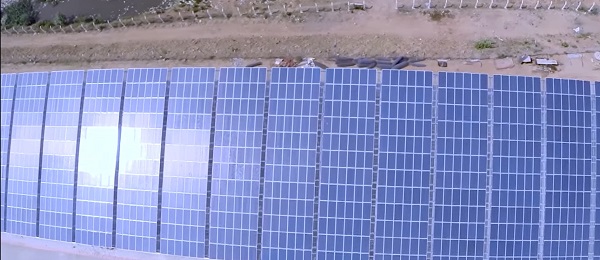

From the Daily Caller News Foundation
By Chris Talgo
Like most of Western Europe, Spain and Portugal have been at the forefront of the green movement in recent decades. Both nations have embraced renewable energy sources, especially wind and solar, as they have transformed their energy grid infrastructure to rely heavily upon these sources.
With that being said, it should come as no surprise that the extensive power outage that crippled these countries and parts of others earlier this week was primarily caused by a huge drop in solar power output in a short period of time.
To be exact, as the Associated Press reports, “In a span of just five minutes, between 12:30 and 12:35 p.m. local time (1030-1035 GMT) on Monday, solar PV generation plunged by more than 50% to 8 gigawatts (GW) from more than 18 GW.”
Based on an early report, the sudden drop in solar power occurred at two solar facilities in southwest Spain, which triggered a “complete collapse of the system,” according to Spanish Prime Minister Pedro Sánchez.
Because power grids are complex structures that are often intertwined among nations, when one country experiences a major outage, it typically spreads to its neighbors as well. Such is why areas in Portugal, France, and Belgium experienced large power outages after the Spanish grid collapsed.
Predictably, the mainstream media are totally ignoring the cause of this manmade disaster.
For now, the official narrative is that the abrupt power outage was due to a “rare atmospheric phenomenon.”
The truth is that Spain, which generated 56 percent of its electricity mix in 2024 from renewables, has become a canary in the coal mine for other nations that are considering going all-in on renewable energy.
Red Electrica, a fitting name for Spain’s monopolistic utility power provider, blamed the power failure on “severe oscillations in high-voltage lines in southern France or inland Spain.” The company said the possible causes “include a physical fault (line disconnection), a sudden loss of generation within Spain or an atmospheric phenomenon.”
What recently occurred in Spain, Portugal, France, and Belgium is not an isolated incident; it is only the latest instance of an electric grid being unable to deliver on-demand power due to an overreliance on renewable energy.
The same thing’s been occurring more and more in the United States in recent years, especially after President Biden’s four-year war on natural gas and coal, which can provide abundant, affordable, and reliable energy 24 hours per days, seven days per week.
As the federal government, in cahoots with state and local governments, has pushed electricity grid operators to build more solar and wind power facilities instead of dependable natural gas plants while prematurely shuttering perfectly operable coal power plants, the U.S. grid has suffered.
As the American Energy Alliance notes, “ power outages have increased by 93 percent across the United States over the last 5 years—a time when solar and wind power have increased by 60 percent. Texas, who leads the nation in wind generation, and California, who leads the nation in solar generation, have had the largest number of power outages in the nation over those 5 years.”
It also must be emphasized that wind and solar are not environmentally friendly.
While it is true that solar panels and wind turbines produce little to no direct carbon monoxide emissions; it is also true that the manufacturing process requires vast amounts of rare earth elements.
It is also the case, as even the Los Angeles Times acknowledged in 2022, that enormous solar fields and gigantic wind turbines destroy pristine lands, disrupt habitats, are nearly impossible to recycle, and result in the mass killing of birds, whales, and other animals.
Finally, it is essential to reinforce the fact that not only are wind and solar unreliable and bad for the environment, but they also cost more, not less, than natural gas and coal.
As James Taylor, President of The Heartland Institute, notes in a new Policy Study, “a peer-reviewed analysis of full-system levelized costs of competing power sources shows wind power is seven times more expensive than natural gas power and solar power is 10 times more expensive.”
The good news for Americans is that President Trump understands the fundamental folly of the so-called green movement. Unlike his predecessor, Trump is not interested in pushing what he calls the “green new scam.”
Over his first 100 days, Trump has taken a vast array of actions to roll back Biden-era regulations that stifled domestic energy production. Moreover, Trump wants to export natural gas to Western Europe, which would weaken Russia’s war machine while bringing our traditional European allies back in the fold.
Hopefully, this dark episode will help other European nations, Germany in particular, recognize that you simply cannot run a modern nation primarily on wind and solar power.
Chris Talgo is editorial director at The Heartland Institute.
-
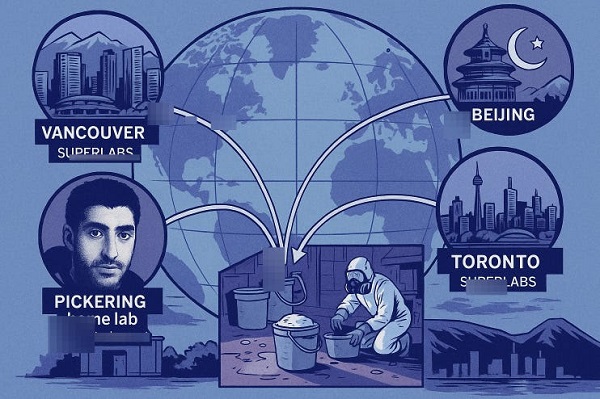
 Crime1 day ago
Crime1 day agoCanada Blocked DEA Request to Investigate Massive Toronto Carfentanil Seizure for Terror Links
-

 2025 Federal Election2 days ago
2025 Federal Election2 days agoThe Liberals torched their own agenda just to cling to power
-

 Business2 days ago
Business2 days agoTrump says he expects ‘great relationship’ with Carney, who ‘hated’ him less than Poilievre
-

 Business2 days ago
Business2 days agoCanada urgently needs a watchdog for government waste
-

 International7 hours ago
International7 hours agoPentagon Salivates Over ‘Expensive’ Weapons While China Races Into Future With Iron Grip Over Cheap Drone Tech
-
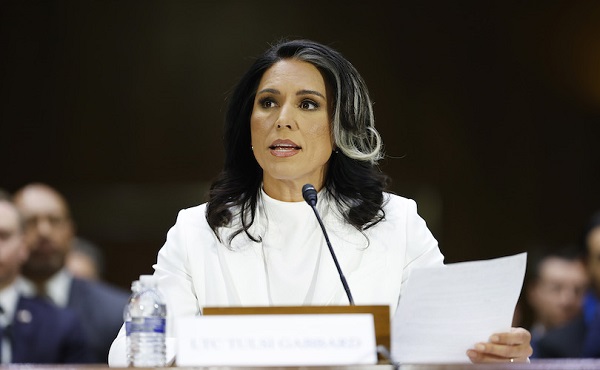
 COVID-1916 hours ago
COVID-1916 hours agoTulsi Gabbard says US funded ‘gain-of-function’ research at Wuhan lab at heart of COVID ‘leak’
-

 Alberta8 hours ago
Alberta8 hours agoPierre Poilievre will run to represent Camrose, Stettler, Hanna, and Drumheller in Central Alberta by-election
-

 Business16 hours ago
Business16 hours agoTop Canadian bank ditches UN-backed ‘net zero’ climate goals it helped create



